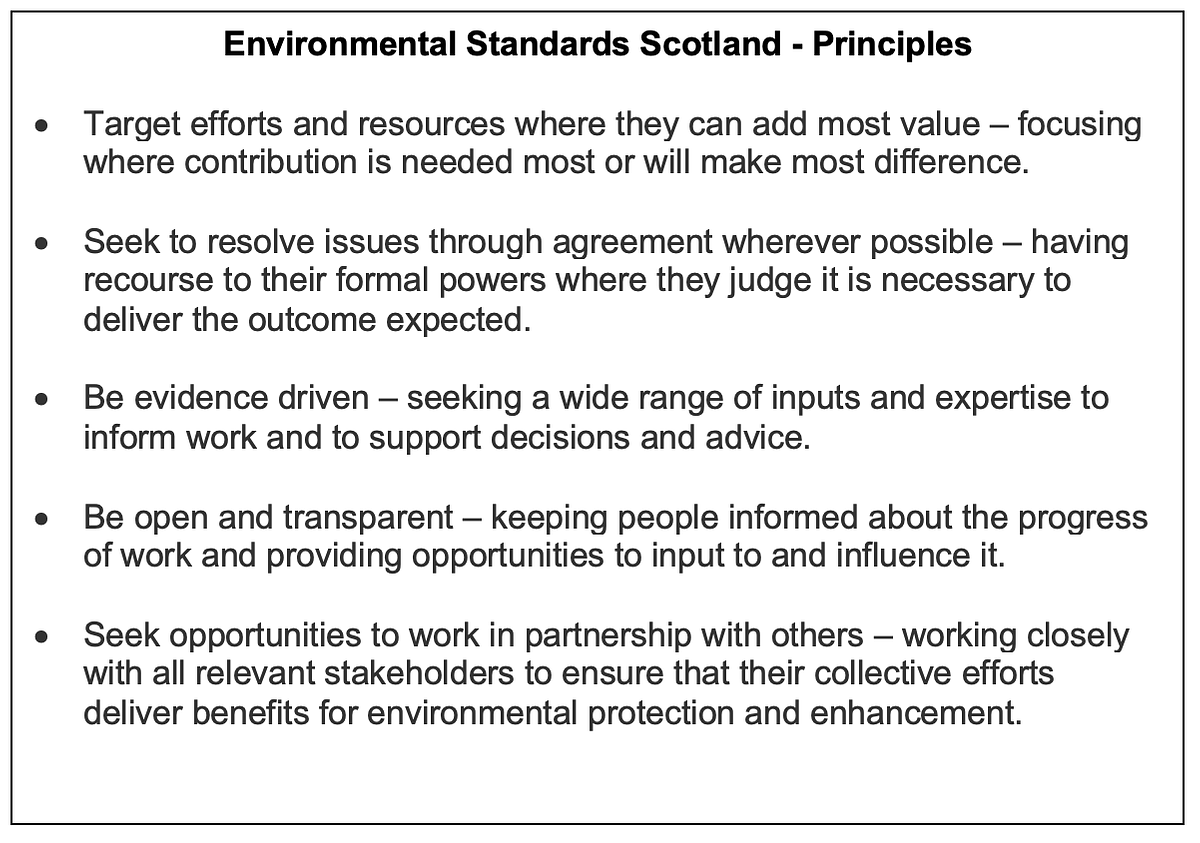There’s a new environmental regulator in town following the UK’s departure from the EU – and they’re keen to promote understanding of their role, how concerns can be brought to their attention and how they plan to work with others to address shortcomings.
Environmental Standards Scotland (ESS) formally took up the powers granted to it through the UK Withdrawal from the European Union (Continuity) (Scotland) Act 2021 on the 1st of October last year.
The new body is charged with scrutinising both compliance with, and the effectiveness of, environmental law in Scotland – now that the EU and the European Environment Agency are no longer monitoring standards and the application of the law in the UK.
ESS has been established as a non-Ministerial office – independent of the Scottish Government and Ministers and accountable to the Scottish Parliament. Their role covers any legislative provision concerned with environmental protection, and all public authorities responsible for implementing those laws in Scotland – including bodies exercising public functions on behalf of a public authority – fall under their remit.
The work of the organisation will be directed by a Board – Chaired by Jim Martin – previously Scottish Public Service Ombudsman, and currently Chair of the Scottish Legal Complaints Commission.
Whilst they are now officially up and running, and beginning to consider and investigate issues, there is still some work to do to finalise ways of working and to identify the areas of law they will be focussing on. There is therefore an opportunity for SSN members to help inform the organisation’s approach and its early priorities.
ESS have published an Interim Strategic Plan – setting out how they intend to carry out their role until the final strategy is approved by the Scottish Parliament. They will consult formally on a Proposed Strategic Plan later in 2022 but, in the meantime, are keen to hear from those at the sharp end of the implementation of environmental law – what works, what doesn’t and how could things be improved?
As their Vision, published earlier this year, makes clear – the body’s focus is on working with all stakeholders to improve environmental outcomes for Scotland’s communities and wildlife. They are therefore keen to hear from those involved in interpreting and implementing environmental law and standards in Scotland to shape the future work programme.

As well as a Vision, ESS have set out a number of principles that will underpin their work and guide their approach.

Over the new few months, ESS will be attempting to put these principles into practice as they begin to engage with a wide cross-section of public authorities, NGOs, communities and businesses about the challenges they face and observe in implementing environmental law in Scotland.
They are keen to hear from anyone with concerns about compliance or effectiveness – and a simple ‘representation’ form can be downloaded from their website to detail concerns. These will be considered alongside evidence and data from a wide range of sources to prioritise and target investigations and approaches to the authorities concerned to seek improvements.
Where ESS conclude that changes need to be made, they have a range of statutory powers to help secure compliance by authorities, or to improve the effectiveness of the application of the law. These include powers to require information from public authorities (Information Notices), to require authorities to take steps to address failures (Compliance Notices), or recommending that the Scottish Government takes action to address systemic failures (Improvement Reports). In addition, and only where they consider that a failure or the impact of a failure is, or is likely to be, serious, they can apply for a Judicial Review.
However, despite being granted these formal powers, the Continuity Act also makes clear that they are expected to work with authorities to try to resolve issues informally wherever possible – given that securing agreement about the improvements that should be made is likely to be more effective, efficient and timely.
From the stage a potential shortcoming is first identified – up to the point that conclusions and recommendations are finalised, ESS will seek informal resolution with the public authority(s) concerned. Only where it is considered that it is not possible will they resort to formal action.
ESS understand that there are important challenges to be addressed and are looking forward to working with SSN members to bring about improvements to both compliance and effectiveness.
If you have experiences that you would like to share, please get in touch through their website – www.environmentalstandards.scot – they would be delighted to hear from you.